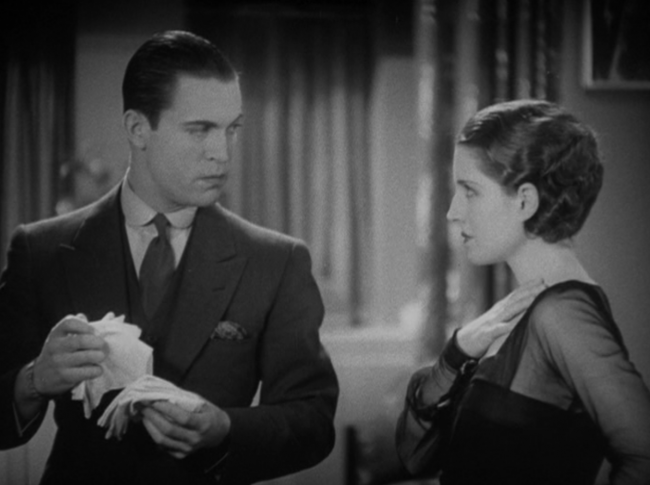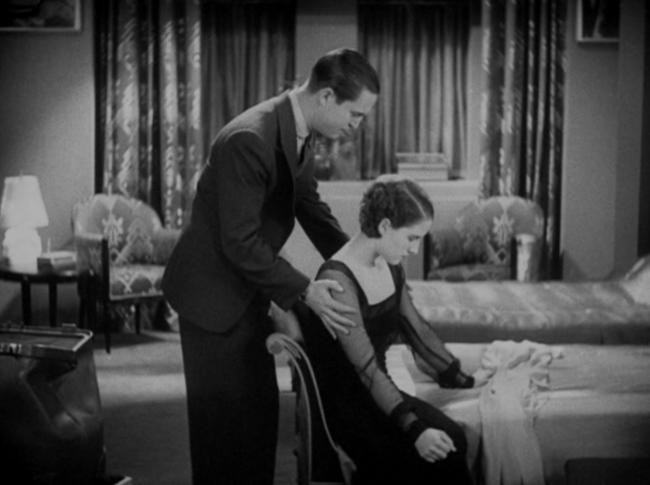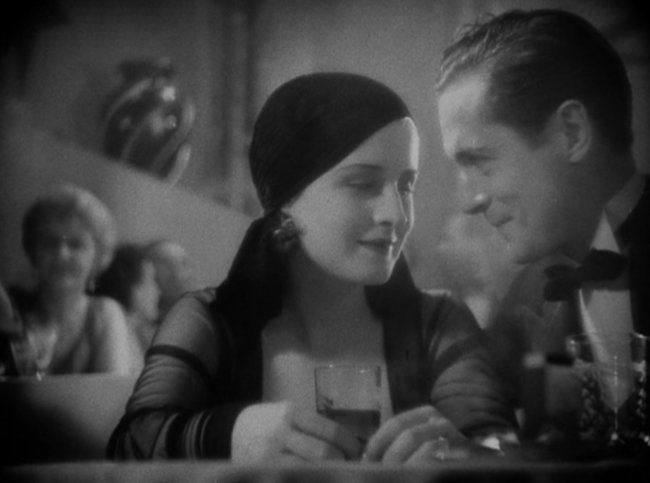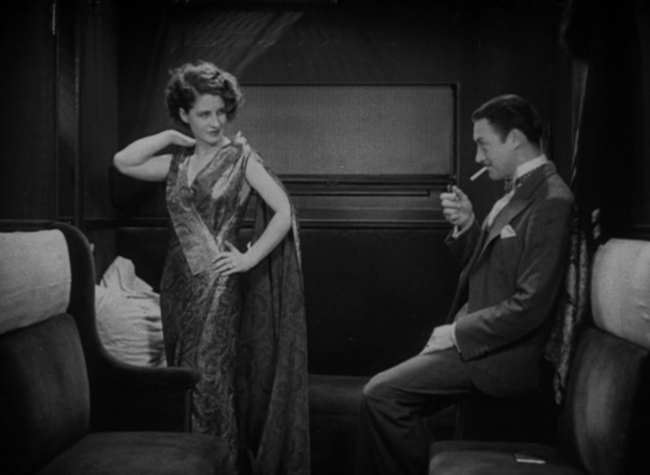Norma Shearer - The love realist.
- Jennifer Kellow Fiorini

- Nov 15, 2020
- 4 min read
Updated: Mar 20, 2021
By Jennifer Kellow-Fiorini

Norma Shearer, if known at all by casual moviegoers, may be remembered for playing the lead in the 1939 film, The Women. But in the pre-Code era she was a boundary pusher, not unlike Madonna or Lady Gaga. She played restless, intelligent women who rebelled against male power, showing her audience that women‘s options were not so limited. In 1930, Shearer stated, “The morals of yesterday are no more. They are as dead as the day they were lived. Economic independence has put woman on exactly the same footing as men.”

Inventing the modern woman.
Garbo and Shearer were both feminists with different on-screen personas. As author Mick LaSalle says, “Garbo was the love idealist and Shearer was the love realist. They both dealt with the consequences of love in the age of sexual freedom. Garbo was a mystery, Shearer was accessible.” It was precisely this accessibility that made her the number one target of religious and moral censorship groups.

Shearer proves she's sexy enough to play The Divorcee, 1930.
Although she was born in the English-speaking Westmount suburb of Montreal, Canada, on August 10, 1902, she became the symbol of ideal young American womanhood. After her father lost the family fortune in a series of bad investments, Norma, along with her mother and sister, went to New York where the girls tried their luck in the theater. While honing her craft, she was spotted by a young Irving Thalberg, head of the Mayer Film Company, which was just about to merge with Metro Goldwyn to become MGM. In 1923, Thalberg, whom she eventually married, brought Norma to Hollywood.
In the silent era women were depicted as types — The Flapper, The Vamp, and The Innocent, but the trends of the 1920s would start to change at an alarming rate. Superstars like Gloria Swanson, Clara Bow, and Mary Pickford would be left in dust as actresses like Shearer surged ahead. In the late 1920s, Shearer was just beginning to develop her persona on screen and as a star. Soon all of those “types” would come together to depict the new womanhood in all its complexity.
By 1930, already starting to specialize in playing a modern woman, she set her sights on the lead in a movie called The Divorcee. Based on a popular book, The Divorcee delt with modern marriage and infidelity. This brand-new generation was doing away with their parents’ traditions and that meant examining whether or not marriage was an outdated concept. Could it be a partnership that allowed women to truly be equal, and, if so, what did that marriage look like? How did it function?

Norma Shearer in 1930s Hollywood.
In the film, after three years of a happy marital partnership that included one penthouse, two careers, and zero children, Jerry (played by Shearer) finds out her husband has cheated while away on a business trip. After discovering him embracing another woman in their kitchen during a cocktail party, he confesses, telling her “it didn’t mean anything.” Deeply bothered, she decides to find out if it didn’t mean anything by having her own affair with her husband’s best friend. When Jerry’s husband returns from his business trip, she informs him that she has “balanced our accounts,” and he launches a verbal tirade that will sound familiar to couples in any decade.
Chester Morris confesses his infidelity to Norma Shearer in The Divorcee 1930. View slideshow for more stills from the film. All images from pre-code.com
“And I thought your heart was breaking like mine. But instead you tell me your man’s pride can’t stand the gaffe. . . . I’m glad I discovered there’s more than one man in the world while I’m young and they want me. Believe me, I’m not missing anything from now on. . . . Loose women are great, but not in the home, eh, Ted? The looser they are, they more they get. The best in the world, no responsibilities. Well, my dear, I’m going to find out how they do it. So look for me in the future where the primroses grow. And pack your man’s pride with the rest. And from now on, you’re the only man in the world that my door is closed to!” - Norma Shearer in The Divorcee
Shearer smartly plays Jerry as a woman who is on a quest to find out who she is and what makes her happy. This was starting to really matter to women, as evidenced by the film’s tagline, “If the world permits the husband to philander, why not the wife?” Although the film flirts with a conventional ending, it still asks audiences to accept her character as a woman who has a right to a sex life without the story punishing her — a requirement after enforcement of the Code.

Image from pre-code.com
The Divorcee won Shearer an Oscar, and started a trend of films that examined what is repeatedly referred to in pre-Code films as a “modern marriage.” During the Code, she continued working, but after the untimely death of Thalberg, her films suffered in quality.

Shearer, Joan Crawford, and Rosalind Russell in The Women, 1939
Notably, her last successful film, before retiring around 1941, was The Women in 1939 — dealing again with a cheating husband. Because of the Code, The Women isn’t much of a journey of exploration, but instead emphasizes relationships between women. In The Divorcee, Shearer’s Jerry quips, “You don’t exactly take the veil when your decree is granted, you know? What should an ex-wife do? Spend her days doing good deeds? Going to bed at night with suitable books?” In what seems like Code punishment, The Women features Shearer’s character pining for her husband, doing good deeds, and reading suitable books in bed.
Review and links for The Divorcee on pre-Code.com
The Divorcee on DVD available on Amazon
Irving Thalberg VS Louis B Mayer - MGM Stories on YMRT podcast igve some good insiight into MGM's pre-code years.
Attaboy Clarence podcast on Censored films
Complicated Women - Sex and Power in Pre-Code Hollywood by Mick Lasalle is available on Amazon and the New York Public Library and Toledo Public Library
Next month - Barbara Stanwyck - The Tough Cookie













Comments